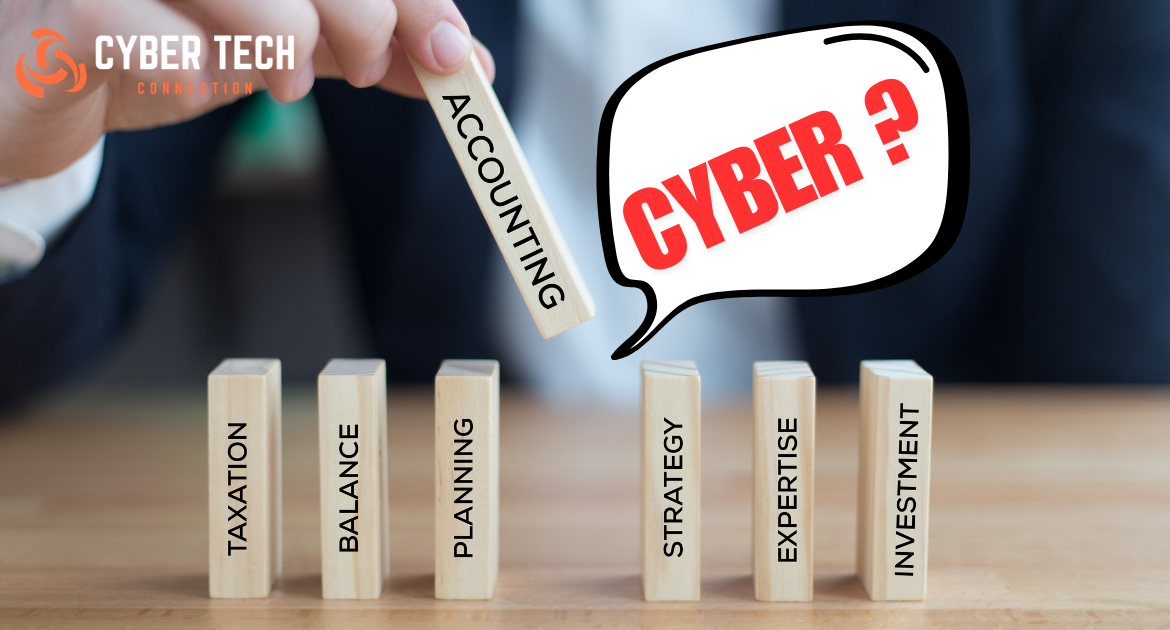As we approach the season of giving thanks, let’s take a moment to appreciate the tools and strategies that protect sensitive data and discuss how CPAs can bolster cybersecurity efforts to safeguard their clients.
CONTACT YOUR ACCOUNT MANAGER TODAY
Why Cybersecurity Matters for CPAs
Cyberattacks targeting the finance and accounting industry have risen significantly, with a focus on breaches that expose client data and financial records. According to recent reports, nearly 80% of cyberattacks target small and mid-sized businesses, many of which are accounting firms handling sensitive information. From ransomware attacks to phishing schemes, cybercriminals are finding more sophisticated ways to breach defenses. For CPAs, protecting client data is not only essential for maintaining trust and compliance but also for preventing the devastating financial repercussions of a data breach.
Top Cybersecurity Threats Facing CPAs Today
1. Ransomware Attacks
- Ransomware continues to be a major threat to businesses of all sizes. This malicious software locks or encrypts a firm’s data, demanding a ransom for its release. According to the latest FBI reports, ransomware attacks surged by over 62% last year alone. A CPA firm, holding sensitive financial records, can become a lucrative target, potentially facing significant ransom demands to regain access to their own data.
2. Phishing and Spear-Phishing Attacks
- Phishing remains a primary tactic for cybercriminals. Phishing emails are becoming increasingly sophisticated, often posing as trusted sources like banks, clients, or even the IRS. Recently, spear-phishing — a more targeted phishing attack aimed specifically at an individual or organization — has become more prevalent. These attacks manipulate employees into giving away credentials or sensitive information, often compromising entire systems.
3. Insider Threats
- Insider threats can stem from either malicious intent or accidental errors, where employees unintentionally expose sensitive information. For CPA firms, the rise in remote work has introduced new risks as staff handle sensitive client data outside of controlled office environments, making it crucial to have monitoring and security policies in place.
4. Supply Chain Vulnerabilities
- As CPAs use more third-party software and cloud services, they open their systems to potential risks associated with their vendors. A vulnerability in a third-party provider’s system can become a gateway for cybercriminals to access the CPA firm’s data. Cyberattacks on supply chains have become a major concern, especially as firms integrate more cloud-based applications into their operations.
Essential Cybersecurity Practices for CPAs
To stay ahead of these threats, CPAs must adopt comprehensive cybersecurity practices. Here are some essential strategies to consider:
1. Implement Multi-Factor Authentication (MFA)
- Multi-factor authentication provides an extra layer of security by requiring a second form of verification in addition to a password. This has become one of the most effective deterrents against unauthorized access. According to recent studies, MFA can prevent 99.9% of attacks on account-based hacks, making it essential for any CPA handling sensitive information.
2. Use Data Encryption
- Encrypting sensitive data both in transit and at rest can significantly reduce the risk of unauthorized access. Encryption ensures that even if cybercriminals intercept data, they can’t read it without the encryption key. For CPA firms, encrypting client files, emails, and backups is critical in protecting client information from cyberattacks.
3. Develop a Data Backup and Recovery Plan
- Cyberattacks and data breaches can have lasting impacts, but a reliable backup and disaster recovery plan ensures that critical data can be restored. CPA firms should regularly back up their data, ideally to a secure cloud-based location, and ensure their recovery plan can be implemented quickly in the event of a breach. This approach minimizes downtime and reduces data loss in cases of ransomware or other attacks.
4. Educate and Train Employees on Cyber Hygiene
- Employee training is one of the most effective ways to prevent phishing and other cyber threats. A well-informed team is far less likely to fall victim to phishing scams or inadvertently share sensitive information. Regular training sessions that focus on recognizing phishing emails, safe internet practices, and secure data handling go a long way in fortifying a firm’s defenses.
5. Partner with a Trusted Cybersecurity Expert
- Working with cybersecurity professionals can be invaluable. Many CPA firms may not have dedicated cybersecurity staff, making it beneficial to partner with a Managed Security Service Provider (MSSP) or consultant. These experts can perform vulnerability assessments, implement best practices, and monitor systems 24/7 to ensure a proactive approach to cybersecurity.
How CPAs Can Strengthen Client Relationships Through Cybersecurity
Investing in cybersecurity is not only a safeguard but also a value-add for CPA firms. Clients are becoming increasingly aware of data privacy concerns and are more likely to trust firms that prioritize security. By implementing robust cybersecurity practices, CPAs signal their commitment to protecting client data, reinforcing trust, and differentiating themselves from competitors.
Additionally, CPAs can extend their cybersecurity expertise by advising clients on best practices for data protection, especially as businesses become more reliant on digital transactions and cloud services. This proactive approach to cybersecurity strengthens client relationships, positioning CPAs as trusted advisors in an era where data protection is paramount.

